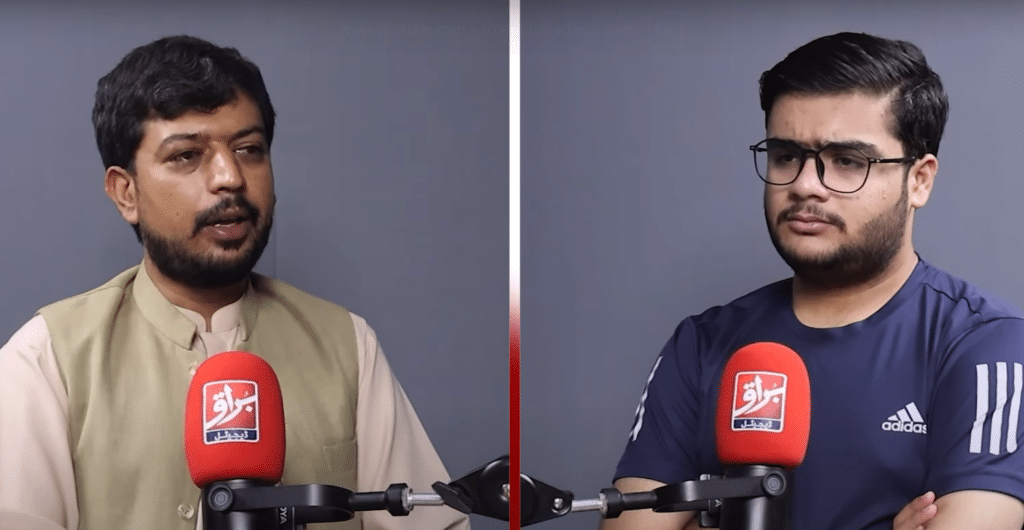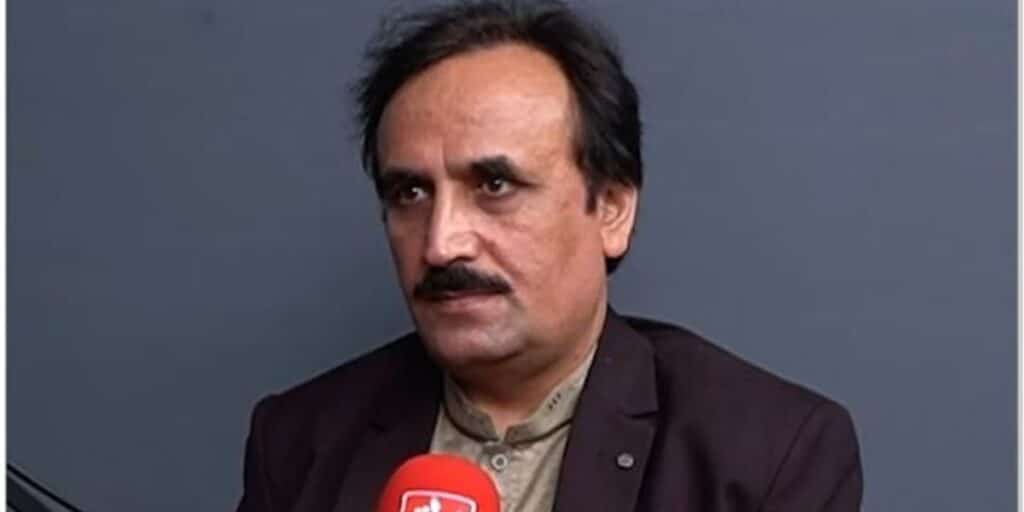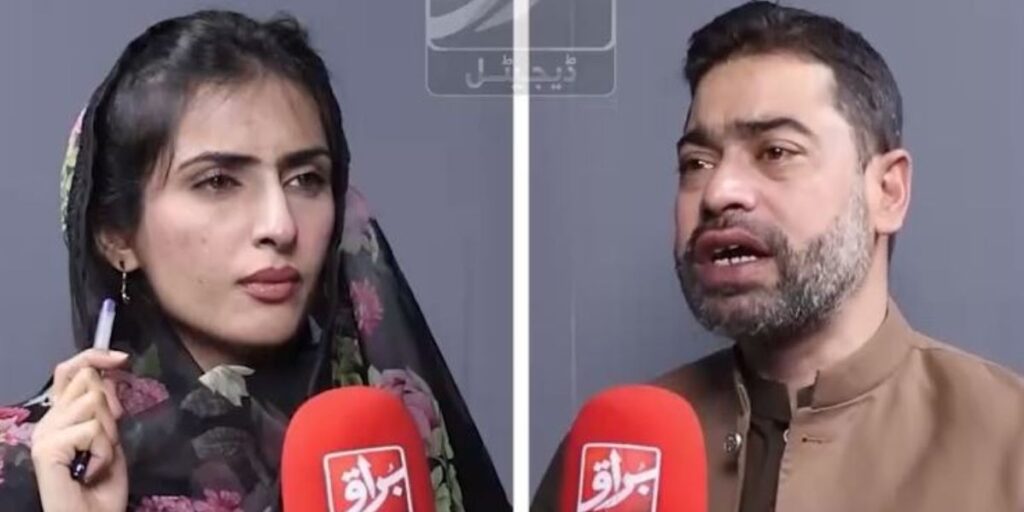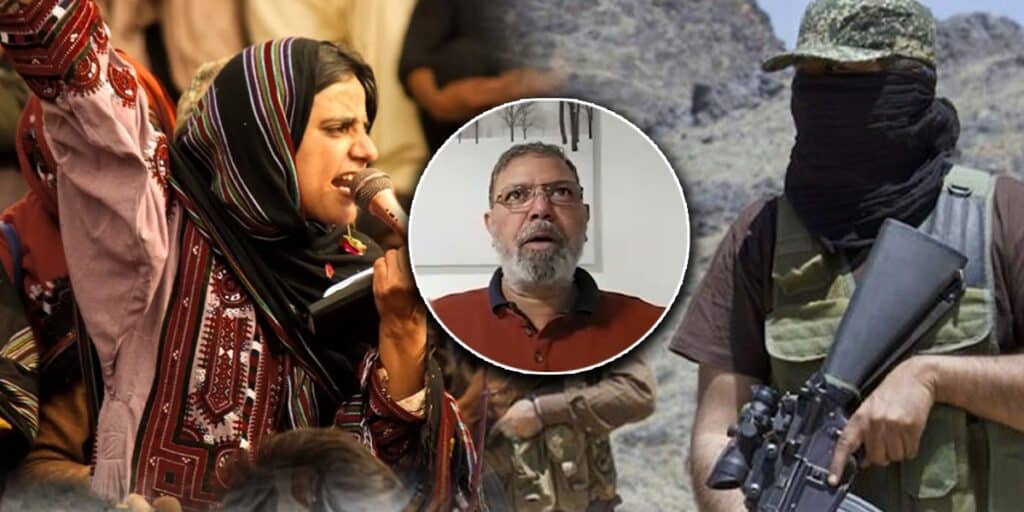By: Adnan Saleem Baloch
Over the past few years, I’ve observed with growing concern the rise of certain narratives in Balochistan, particularly those championed by the Baloch Yekjehti Committee (BYC) and its leading figure, Dr. Mahrang Baloch. It is presented as a movement for human rights and justice, I believe this campaign operates with disturbing contradictions ones that are rarely questioned but deeply impact our society, security, and youth.
In this regard, someone who has closely followed the security situation in Balochistan, I cannot ignore the troubling associations that have emerged between Dr. Mahrang and banned terrorist organizations like the Baloch Liberation Army (BLA) and the Baloch Liberation Front (BLF).
These groups, responsible for countless acts of violence and bloodshed across the province, have long operated under the false pretense of “freedom fighting.” Yet, their methods and ideology reflect terrorism, not liberation.
What alarms me is the quiet comfort with which BYC narratives seem to run parallel to those of these militant groups at times even echoing their language, their grievances, and their anti-state rhetoric.
To me, this is not accidental.
It is widely suspected and in some circles openly discussed that Dr. Mahrang Baloch is supported by foreign intelligence agencies. These allegations must not be taken lightly. When foreign funds and agendas begin to shape the political discourse within a country, especially one as sensitive as Balochistan, the consequences can be dangerous and divisive.
Youth, who are desperate for identity, justice, and voice, become the easiest targets. They are emotionally influenced, intellectually hijacked, and eventually positioned as pawns in a larger ideological war that seeks to destabilize Pakistan from within.
Furthermore, when a terrorist, trained and armed to kill Pakistani civilians or security personnel, is neutralized in an operation, we see immediate outrage from Dr. Mahrang and her circles. Social media campaigns explode with cries of “state oppression,” and hashtags emerge overnight.
However, when a soldier, a Baloch tribal elder loyal to Pakistan, or an innocent civilian is slaughtered by separatist militants, there is silence. Not a tweet. Not a protest. Not a vigil. This selective activism is not just hypocritical, it is dangerous.
Human rights, in their truest essence, must be universal. If one only stands up for certain deaths and remains silent on others, then it is not a human rights movement—it is a political agenda.
In such a scenario, another troubling tactic I have observed is how truth and lies are weaponized interchangeably by these groups. When there is a legitimate state operation against insurgents, it is painted as genocide.
When terrorists are apprehended or eliminated after confirmed intelligence, the narrative becomes one of enforced disappearances and “missing persons.” Conversely, when any false rumor or unverified claim suits their ideology, it is immediately shared as gospel truth, without accountability.
Meanwhile, facts that challenge their claims are conveniently dismissed as state propaganda. Balochistan has suffered for decades from neglect, underdevelopment, and yes, at times, from overreach by certain state elements.
The youth of Balochistan need education, opportunity, representation, and justice but they also need protection from false hope offered by those who have turned their grief into political capital.
Dr. Mahrang Baloch has emerged as a powerful figure, no doubt. She is articulate, visible, and influential. But with influence comes responsibility and when that influence is used to indirectly validate terror, provoke unrest, or deepen mistrust between people and the state, then it is no longer just activism. It becomes part of the problem.
Balochistan needs unity, not division. It needs real heroes who build bridges not ideologues who burn them. It needs leaders who speak for all Baloch regardless of their political leanings or tribal affiliations.
I say this not out of hatred, but out of hope. Hope that our youth will see through the smokescreens.
Also Read: Terror plot foiled in Hub: Suicide bomber arrested at BYC protest
The truth is not always easy to tell, but silence helps no one except those who benefit from chaos.





